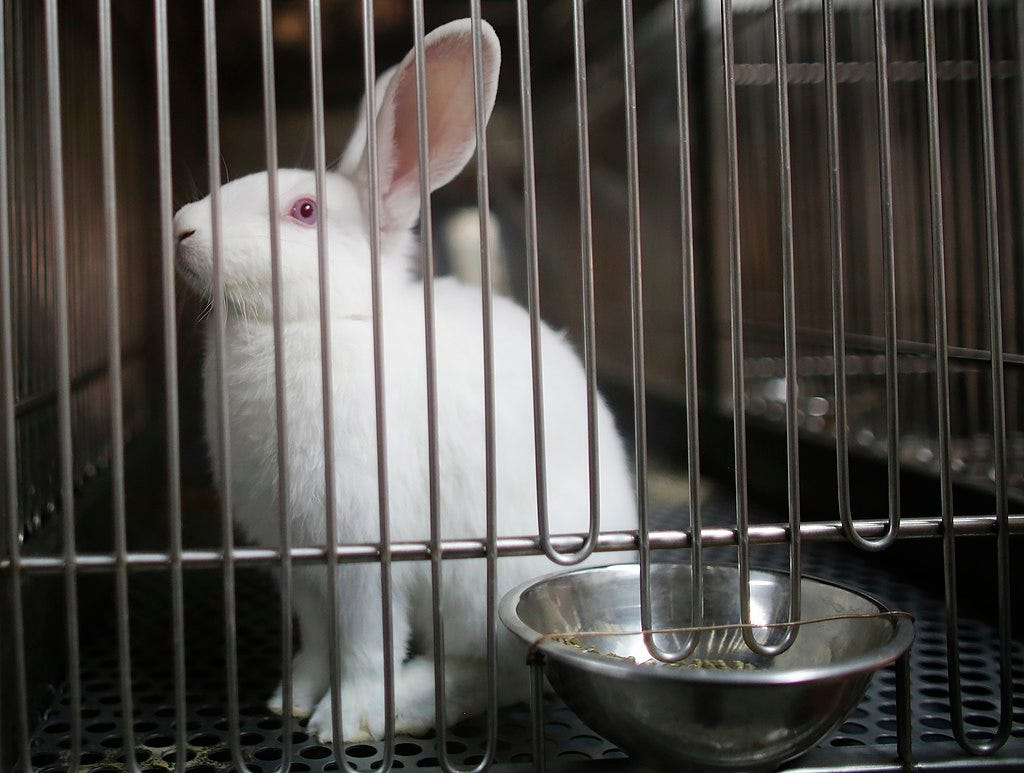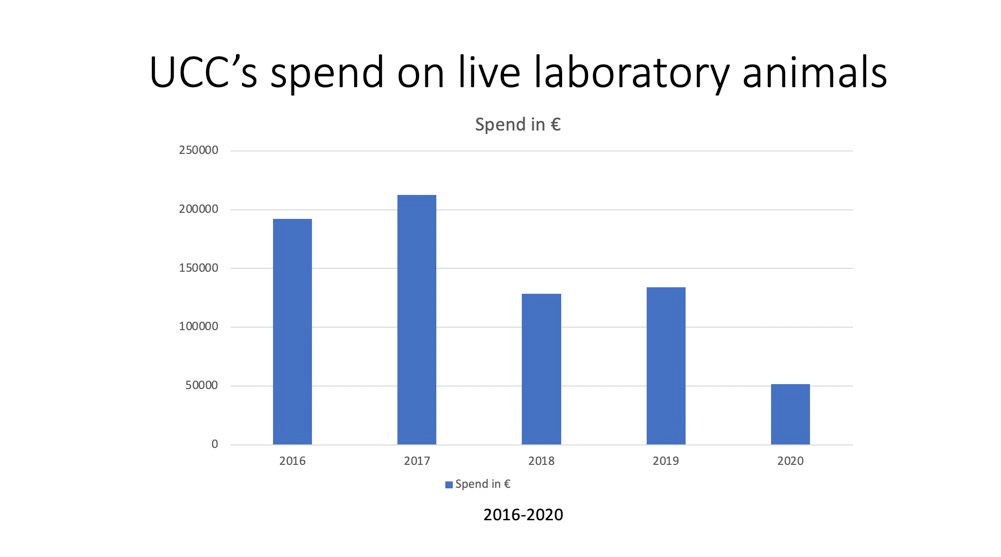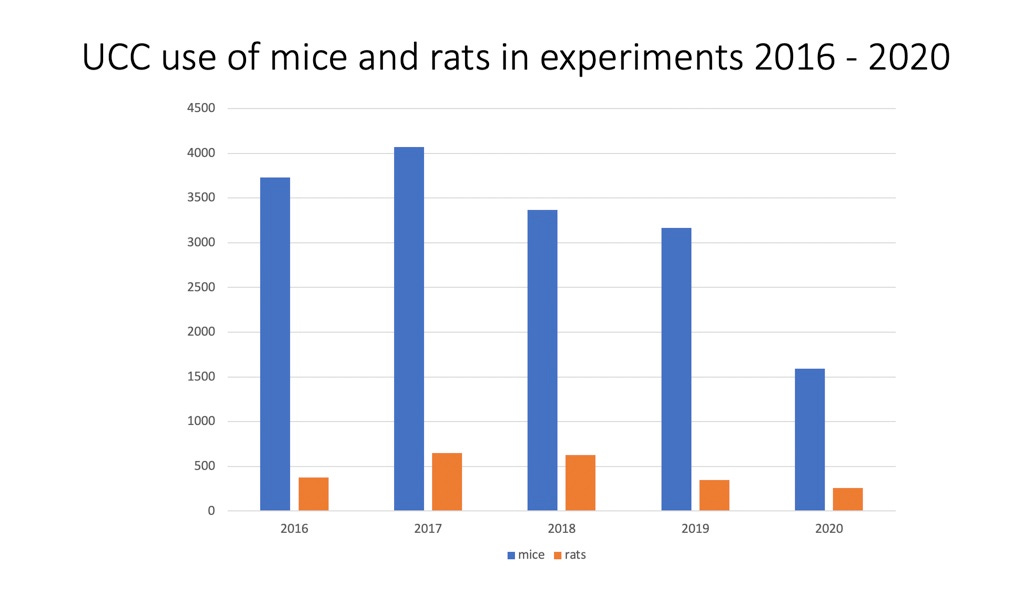UCC’s live animal experiments nearly halved in 2020
Cork's university is the biggest academic spender on live animals in the state and has spent €718,900 over five years on animals including mice, rats, rabbits and pigs.
The number of live animals used in laboratory experiments in UCC dropped from 3,557 in 2019 to 1,861 in 2020 due to Covid-19 restrictions on laboratory usage, according to a Freedom of Information return.

3,557 animals, including 3,164 mice and 35 pigs, were used in animal trials in UCC laboratories in 2019, at a cost of €134,006.
However in 2020, 1,861 animals were used in experiments in 2020 at a cost of €51,464, according to an FOI return I received this week.
UCC is the Irish academic institution with the single biggest spend on live animals for experimentation. A total of €718,900 has been spent on lab animals by UCC in the past five years.
Animals used in lab experiments in UCC include mice, rats, rabbits, pigs, guinea pigs, fish, amphibians and birds.
The largest mammal used for lab experiments in UCC is the pig: the university normally procures and euthanises between 25-35 pigs per year. However, this dropped to just two pigs in 2020.
Animals are procured through Irish and UK companies or are bred by the institution’s Biological Services Unit.
Over 22,000 animals were euthanised in UCC between 2016 and 2019, according to an article by Irish Examiner journalist Kevin O’Neill.
Costs relating to disposal of animal carcasses were not available under FOI because these costs are not recorded separately to other waste management costs in the college, according to my return.
Details relating to the experiments animals are used for in UCC can’t be revealed under the FOI act because the release of such records “may endanger the life or safety of a person, or facilitate the commission of an offence.”
The unprecedented drop in procurement of live animals in 2020 was due to laboratory access being postponed under Covid-19 restrictions, a UCC press officer confirmed in a statement.
"UCC has restricted access to campus and laboratories in line with public health guidelines, resulting in a reduction in the amount of lab work carried out over the past year,” the statement said.
Wherever possible, alternatives to live animals including cell lines, tissues, yeasts and bacteria are used, according to UCC, and research on live animals is not conducted for cosmetic purposes. Animal experimentation is conducted in line with all relevant legislation and with the oversight of vets, an animal welfare body, and an ethical review committee.
“The use of animals in state-funded scientific research has produced beneficial results to human health that could not otherwise have been achieved,” the statement said.
“Projects include those related to Cancer Research, Alzheimer’s Disease, Parkinson’s Disease, Cardiovascular Disease, Irritable Bowel Syndrome, Crohn’s Disease, Anxiety & Depression, Ocular Genetics and Obstetrics & Gynaecology.”
Animals are euthanized by trained personnel following experiments.






